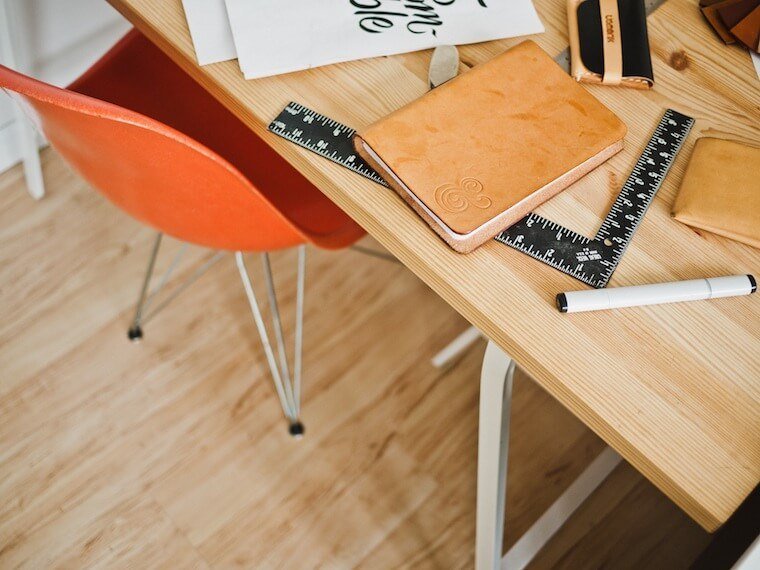Well+Good is your healthiest relationship, hooking you up with the best, most interesting things/people/leggings in wellness. And nothing gets at this concept better than the plus sign in our logo.
Inside this plus sign, which acts like a gallery window, we showcase the most exciting, transformative trends and ideas that add wellness to your life. This week on The Plus Factor, we’re focused on the cult of being busy—and why experts are saying it’s time for us to break free, once and for all.
I’ll admit it—when someone asks me how I’m doing, the first word that usually comes out of my mouth is “busy.” (Usually preceded by a big, overly dramatic sigh.)
And I’m definitely not alone. Maybe you remember that buzzy essay that Tim Kreider wrote for the New York Times back in 2012 titled “The ‘Busy’ Trap”— about how so many of us over-schedule ourselves in order to feel more important, perhaps, or to avoid being alone with our thoughts.
“[People are] busy because of their own ambition or drive or anxiety,” he wrote. “They’re addicted to busyness and dread what they might have to face in its absence.”
Like many people, I read the essay (and some of the 800+ comments it garnered), I shared it, and I took a critical look at my own habits after I got over my initial defensiveness. Yet four years later, nothing’s really changed for me or for my peers—city folk who have careers they work hard at, households to manage, and lots of relationships that need attention (not to mention workouts to keep up with and healthy dinners to cook from scratch).
"Being busy is a disease of our time."
Problem is, being in the eye of a never-ending activity hurricane is actually really bad for our health. “Being busy is a disease of our time,” attests Pedram Shojai, Oriental Medicine Doctor (OMD) and author of The Urban Monk. “The body physiologically needs to unplug, to relax. But we’ve become so accustomed to a state of sympathetic nervous system overload that we can’t get out.”

{{post.sponsorText}}
He goes on to say that constant stress is linked to all sorts of issues, from migraines and anxiety to sexual disorders. “All these things come secondarily to what I call ‘time compression’—when you put too many items into too little time and you feel stressed about it,” he says. “But that’s the world we live in—you’re driven to do more than feels comfortable.”
So why, exactly, is it so hard for us to slow down—and is there anything that might truly convince us to pump the brakes?
Keep reading to discover what experts have to say about the glorification of ‘busy’—and the hacks that’ll help you make more space in your life.

Why "busy" has become the new normal—and why that’s not cool
According to Emily Fletcher, founder of Ziva Meditation, the desire to keep busy is an essential part of being human. “We love feeling important and needed, which is what ‘busy’ provides us with,” she tells me, adding that packed schedules are built into the American dream that many of us still strive for. “The proverbial rat race has some built-in promises. The harder you work now, the bigger the payoff in the future... this will all be worth it once you 'finish' and find that pile of money and happiness.”
The rise of Facebook and Instagram has just magnified those ideals, adds Shojai—we’re constantly comparing our lives to others’ (or, at least, what others choose to show us) and trying to keep pace socially and materially. “Everyone thinks they’re only as good as their ability to produce,” he says. “We get into this really challenging proposition where you can never be happy just relaxing. If you’re relaxing, you’re a loser.”
“We get into this really challenging proposition where you can never be happy just relaxing. If you’re relaxing, you’re a loser.”
And so we fill our days with a blur of work and social commitments—lots of activities and distractions, without a whole lot of depth. This was a major topic of conversation at a recent goal-setting workshop in New York City hosted by Sky Ting yoga and women’s leadership site OK Real. Sky Ting co-founder Chloe Kernaghan admits that there’s a lot of societal pressure to “be involved in a lot and always have a full plate,” but she adds that focusing on how busy we are is like putting on a mask—it keeps us from connecting on a deeper level.
“While, in this day and age, we can all readily accept that we lead busy lives, we think it's important to not let ‘busy’ be the baseline of how we function,” she says. “[That response] shows your mind is elsewhere, thinking about work you have ahead of you or something you just finished.” Instead of, you know, the people in front of you.

But are you really as busy as you think you are?
Most career-driven urbanites would probably guess they work way over 40 hours a week and spend far less time than they’d like doing other things. But author Laura Vanderkam argues that, if you take a closer look, that’s probably not the case.
“If you have a thesis that 'I'm so busy!' you can probably find evidence to support that,” she says. “But time is vast. In the whole of the 168 hours in a week, you can also probably find evidence that you have all the time you need, and life is pretty chill.”
She should know—in her new book, I Know How She Does It, Vanderkam had 143 mothers with six-figure jobs log what they did for every hour of one week. Surprisingly, she found that these undeniably “busy” women worked only 44 hours a week on average and slept nearly eight hours a night, leaving 70 hours per week for family, friends, and personal pursuits. The American Time Use Survey, conducted annually by the Bureau of Labor Statistics, shows similar data.
We overestimate the things we don't want to do—work, housework—and underestimate the things we do want to do.
So what gives? “This is just human nature: we overestimate the things we don't want to do—work, housework—and underestimate the things we do want to do,” she says. “Psychologists also have found that negative events tend to stand out in the mind more than positive events. When asked about sleep, we conjure up the night we were up with the baby twice and then had to catch a flight at 7:00 a.m., not the other nights that week when we slept just fine. All surveys that ask people how much time they spend working or sleeping will be subject to huge biases because of this.”
Simply tracking how you spend your time, says Vanderkam, is the first step to breaking free of the ‘busy’ trap. “It’s a lot harder to lie to ourselves when we see where the time goes, right there in black and white.” It’s also a good way to pinpoint all the ways we fritter away the free time we do have—like checking social media, watching TV, or doing unnecessary housework.

Breaking the bad habit of busy
And what about those of us who really do clock 12+ hours in the office each day and spend more time with our friends on Snapchat than IRL? (Sorry! Miss you!)
Start by recognizing that you’re mostly in charge of how you spend your time and that you can choose differently, says Kernaghan. “We all have the same amount of hours in the day,” she reasons. “It’s important to be able to appreciate and engage with everything you're doing as opposed to being overwhelmed by all that's going on. Sometimes that means saying no so you can do good work on fewer things.”
A response to people who say they’re too busy to meditate? “If Oprah has time to meditate, you have time to meditate.”
Then, get to meditating—seriously, all the busiest people do. “Meditation is the most effective tool we have to eradicate stress from the body,” insists Fletcher. “The less stress you have in your body, the more you’re able to be present.” (Her response to people who tell her they’re too busy to meditate? “If Oprah has time to meditate, you have time to meditate.”)
The experts I consulted also stress the importance of eating a healthy diet (including plenty of adaptogens) and sweating on the regular (bonus points if your routine includes yoga) to combat the ill effects of an always-on lifestyle.
Oh, and this is really important: Stop telling people how busy you are. “Try and take a pause when someone asks ‘How are you?’ to really check in and see what's going on, as opposed to relying on the ‘busy’ line,” says Kernaghan. I, for one, am making a conscious effort to stop wearing my busyness as a badge of honor—and it’s happily reminding me that there’s a lot more to my life than my to-do list.
Another key to busting the busy cycle? Simplifying your routine. Check out these 12 low-maintenance natural beauty essentials, 5 awesome at-home workouts, and 5 healthy frozen meals our editors swear by for crazy days.
Loading More Posts...